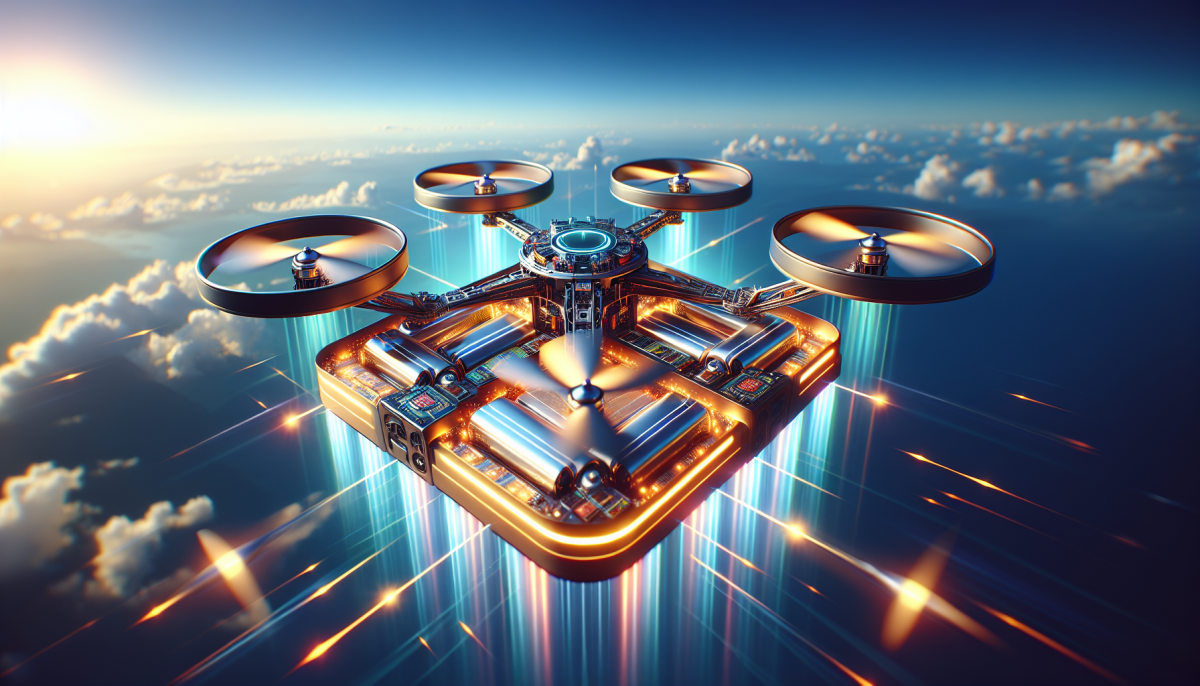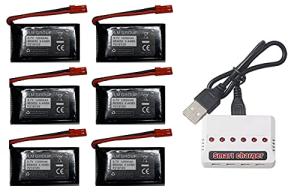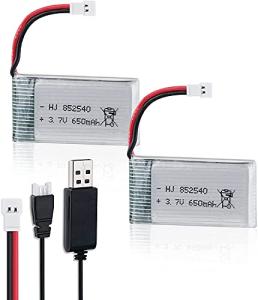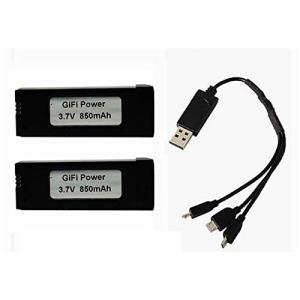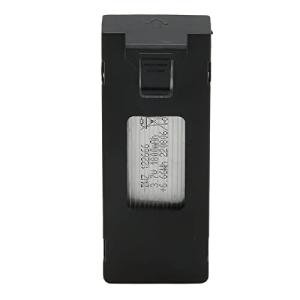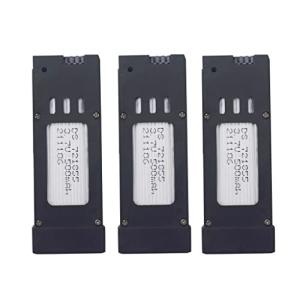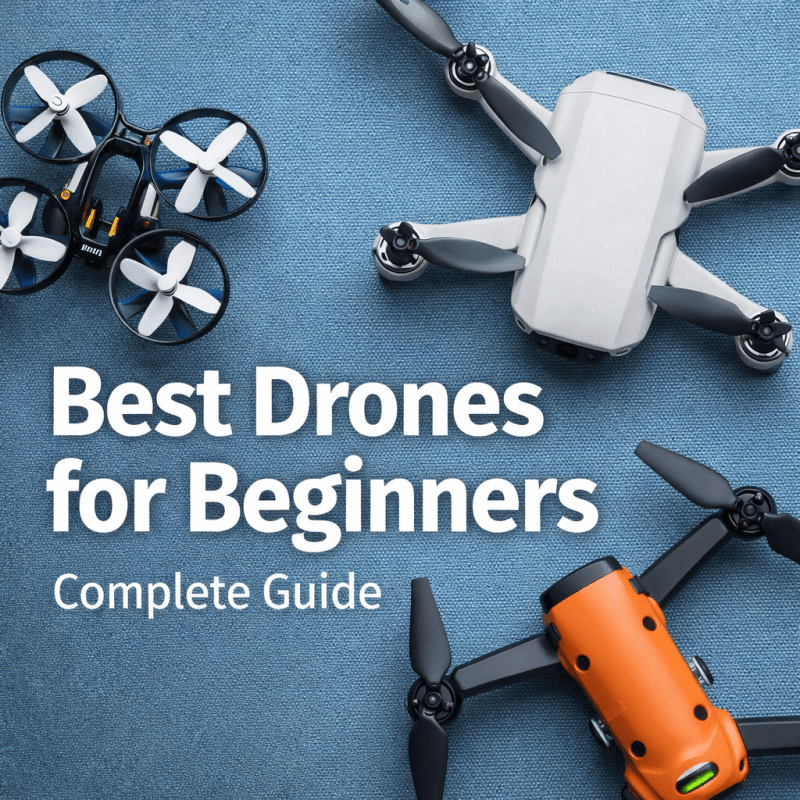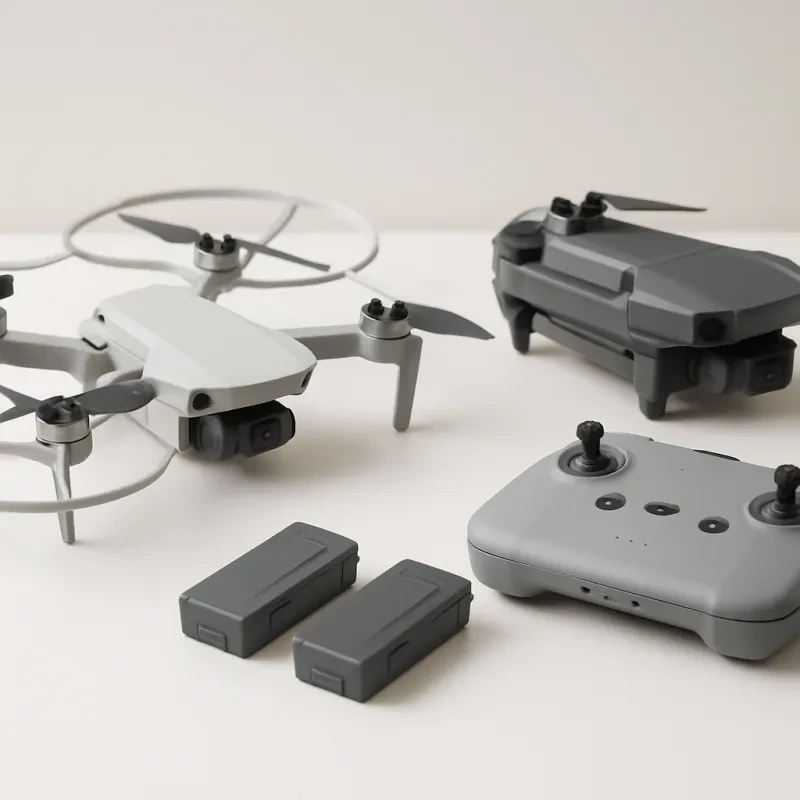Understanding the Pros and Cons of Different Types of Drone Batteries
When it comes to choosing the right battery for your drone, there are many factors to consider. From voltage and capacity to weight and cost, each type of battery has its own pros and cons. To help you make an informed decision, we’ve outlined the benefits and drawbacks of the most popular drone battery types below.
Lithium Polymer (LiPo) Batteries
LiPo batteries are the most commonly used type of battery for drones. They offer high energy density, low weight, and long flight times. However, they are also prone to swelling and puffing which can lead to damage or even fires if not handled properly. They also require specific storage and charging guidelines to prevent damage or degradation.
Pros:
- High energy density
- Lightweight
- Long flight times
Cons:
- Prone to swelling and puffing
- Requires specific storage and charging guidelines
Lithium-Ion (Li-Ion) Batteries
Li-Ion batteries are similar to LiPo batteries in terms of energy density and weight, but they are less prone to swelling and puffing. However, they also have a lower discharge rate which can result in shorter flight times. They are also typically more expensive than LiPo batteries.
Pros:
- High energy density
- Less prone to swelling and puffing
Cons:
- Lower discharge rate
- More expensive than LiPo batteries
Nickel Cadmium (NiCad) Batteries
NiCad batteries were once the most popular type of drone battery, but they have since been largely replaced by LiPo and Li-Ion batteries. They offer a high discharge rate and are less expensive than LiPo batteries, but they are also much heavier and bulkier. They also have a shorter lifespan and are less efficient than newer battery technologies.
Pros:
- High discharge rate
- Less expensive than LiPo batteries
Cons:
- Heavy and bulky
- Shorter lifespan
- Less efficient than newer battery technologies
Nickel Metal Hydride (NiMH) Batteries
NiMH batteries are similar to NiCad batteries in terms of weight and cost, but they have a slightly higher energy density and longer lifespan. However, they also have a lower discharge rate which can result in shorter flight times. They are also less efficient than LiPo and Li-Ion batteries.
Pros:
- Longer lifespan than NiCad batteries
- Slightly higher energy density than NiCad batteries
Cons:
- Lower discharge rate
- Less efficient than LiPo and Li-Ion batteries
In conclusion, choosing the right battery for your drone depends on your specific needs and budget. LiPo batteries are currently the most popular choice due to their high energy density, low weight, and long flight times. However, Li-Ion batteries can provide similar benefits with less risk of swelling and puffing. NiCad and NiMH batteries are less expensive but also less efficient and have shorter lifespans. Whatever type of battery you choose, be sure to follow proper storage and charging guidelines to prevent damage or degradation.
Maximizing Your Drone's Flight Time: Tips and Tricks for Battery Maintenance
Drone batteries are a crucial component that determine how long your drone can stay in the air. Taking good care of your batteries can help you maximize your drone's flight time. Here are some tips and tricks for drone battery maintenance:
1. Always use the manufacturer-recommended charger
Using the wrong charger can damage your battery, shorten its lifespan, and even cause a fire. Always use the charger that came with your drone or the one recommended by the manufacturer. Make sure the charger is compatible with the battery chemistry and voltage of your drone's battery.
2. Store your batteries properly
When not in use, always store your batteries in a cool, dry, and well-ventilated place. Avoid exposing them to extreme temperatures or direct sunlight. When transporting batteries, make sure they are in a fireproof bag or case to prevent any mishaps.
3. Charge your batteries before flying
Make sure your batteries are fully charged before flying your drone. Flying a drone with low battery can not only affect flight time but also damage your battery's cells and decrease its lifespan.
4. Avoid overcharging your batteries
Overcharging a battery can cause it to overheat, burst, or catch fire. Use a smart charger or set a timer to avoid overcharging your battery. Always make sure your charger has an automatic shutoff feature when the battery reaches its full capacity.
5. Regularly check your battery's voltage and health
Use a multimeter or a battery tester to check your battery's voltage and health. If the battery's voltage drops below a certain level, it may need to be charged or replaced. Always check for any damages, swelling, or leaks in your battery before using it.
6. Replace your battery when needed
Even with proper maintenance, batteries degrade over time and lose their capacity. If your battery is no longer holding its charge or swelling, it's time to replace it. Using a damaged battery can harm your drone and cause accidents.
By following these tips, you can take good care of your drone batteries, extend their lifespan, and maximize your drone's flight time.
The Future of Drone Batteries: Advances in Technology and What to Expect Next
The advancements in drone technology are evolving rapidly, and drone batteries play a crucial role in allowing drones to fly and function efficiently. The battery technology used in drones has come a long way, making it possible for the drones to have improved flight time and overall performance. However, there is still a lot of room for innovation, and we are likely to see major changes in drone batteries in the near future.
Advances in Drone Battery Technology
The current generation of drone batteries uses Lithium Polymer or Lithium-ion technology. These battery types are known for their high energy densities that allow for longer flight times and lighter weights. Further improvements are being made to drone batteries with research focused on batteries that can withstand extreme temperatures, higher energy densities, and fast charging.
Apart from traditional battery technologies, companies like Molex, a global connectivity manufacturer, are exploring advanced materials such as solid-state batteries that offer high energy density, low self-discharge, and fast charging capabilities. Additionally, companies like SolidEnergy Systems and Ionic Materials are working on advancements in battery tech that offer higher energy density, enhanced safety, and longer battery life. These improvements are expected to drastically improve the performance of drones and make them more efficient and safer to use.
The Future of Drone Batteries
The next wave of drone batteries will likely include solid-state batteries that offer higher energy density, longer flight time, and safer operations. These batteries are thinner, lighter, and more durable than traditional batteries and are more efficient at storing energy. Fast charging speed would be exciting to see in the upcoming wave of drone batteries, allowing them to be operational again in a matter of few minutes. There is also ongoing research on batteries that are powered by radio frequency (RF) that could allow drones to fly indefinitely within a given range, unveiling new possibilities in drone operations.
In addition, drones that are powered by the sun seem to have a bright future ahead. Several new developments have been made in the field of Solar-Powered Drones. These drones harness the power of the sun using advanced photovoltaic panels, allowing these machines to fly for days without needing to land or be recharged. Solar-Powered Drones have applications in agriculture, search and rescue, and environmental monitoring and thus can have a wide range of potential uses.
Conclusion
The advancements in battery technology have made drones more accessible, efficient, and safer to operate. With the ongoing improvements in battery tech, drones will transform from being toys to becoming crucial tools used in the fields of agriculture, construction, meteorology, search and rescue, and others. Given the pace of innovation, consumers can expect to see significant improvements in drone batteries in the near future that will make drones smarter, more powerful, and long-lasting.
Sky Viper Drone Batteries & Charger Set - 6 Pack
Get more flight time with the Sky Viper Drone Batteries & Charger Set - now with 6 pack!
Product information
£49.90
Product Review Score
4.86 out of 5 stars
161 reviews